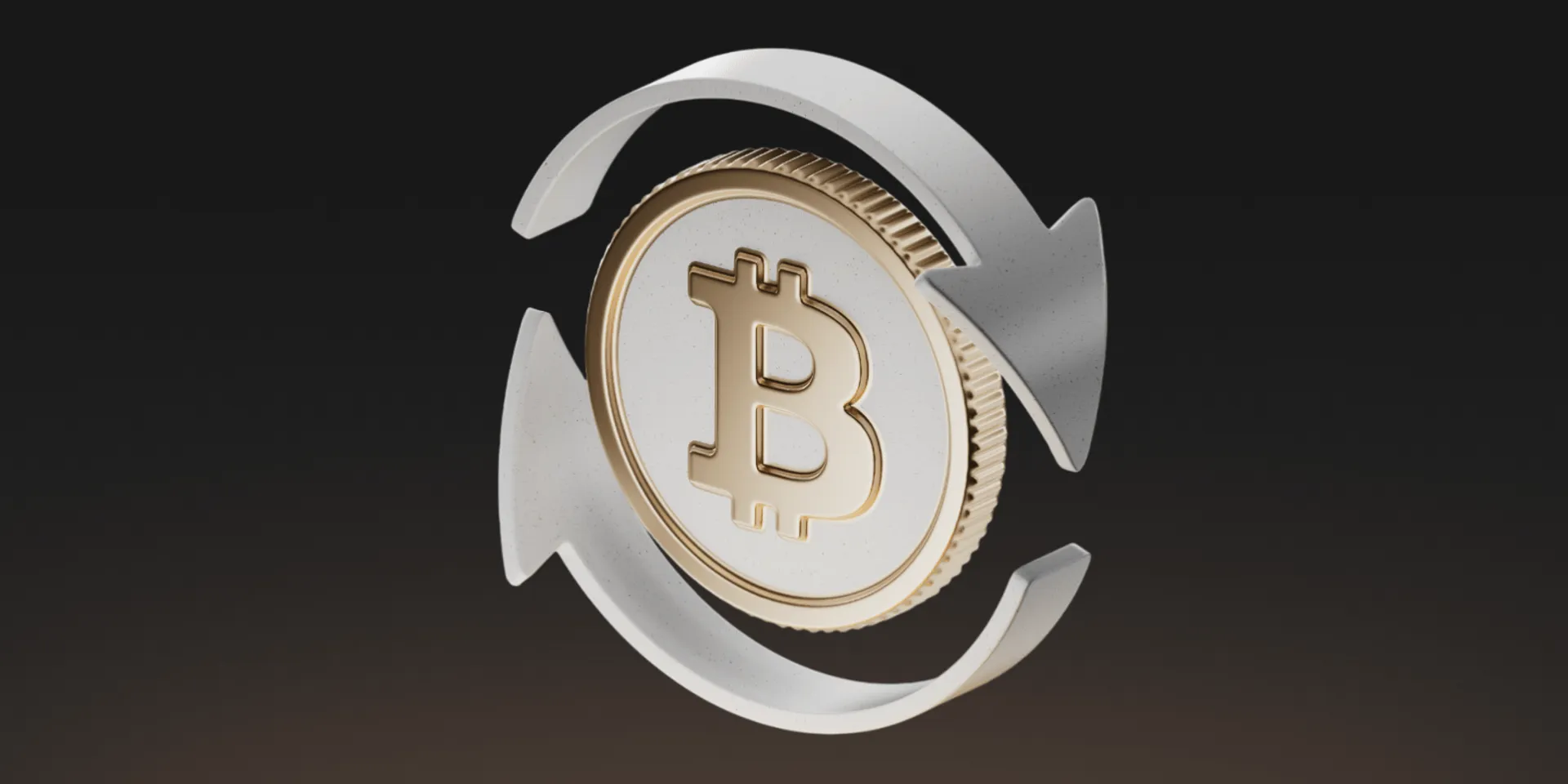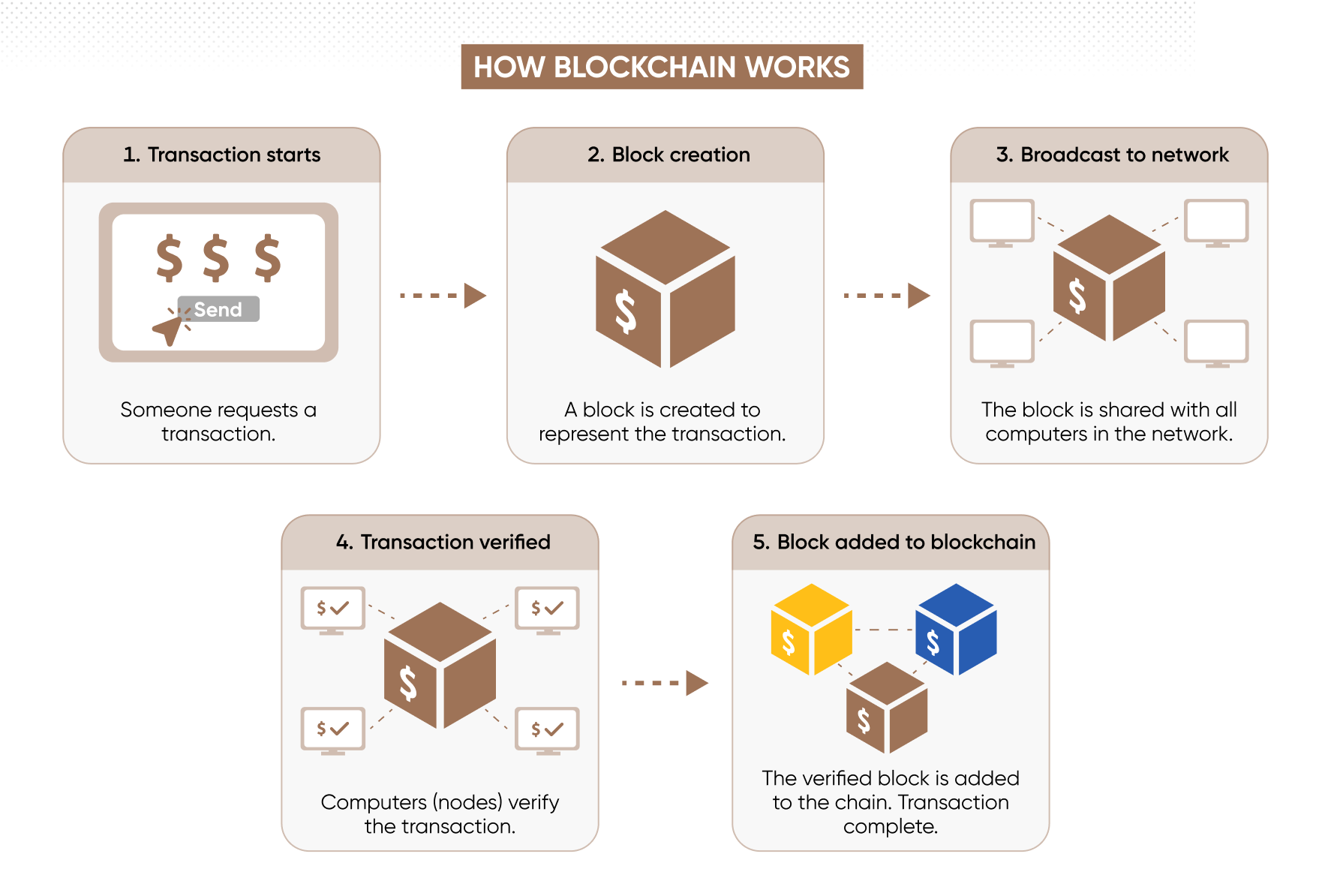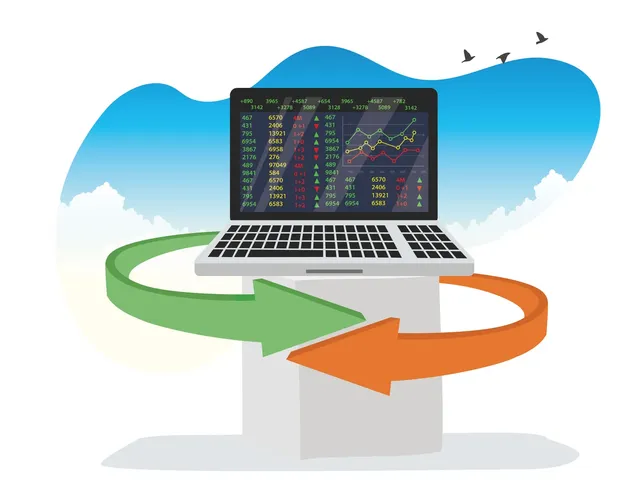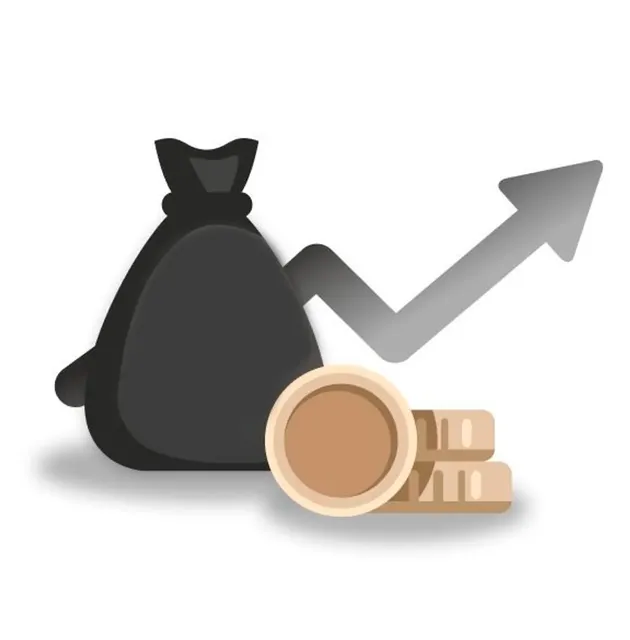What is blockchain and why it’s important for cryptocurrency trading

Blockchain rose to prominence with the emergence of bitcoin. While it powers the world’s largest cryptocurrency, its potential goes far beyond that. This innovative technology is reshaping how we handle secure transactions, manage data, and build digital trust. From financial services to supply chains, governance and regulatory compliance, blockchain is being applied across a wide range of industries.
Understanding what blockchain is and how it works isn’t just for tech enthusiasts – it’s essential if you want to explore the fast-moving world of cryptocurrency trading.
What is blockchain?
The global blockchain market, estimated at $31.28bn in 2024, is projected to reach $1,431.54 billion by 2030, according to Grand View Research. That represents a compound annual growth rate (CAGR) of 90.1% between 2025 and 2030. Here’s blockchain explained in simple words and a look at how exactly this technology works.
At its core, blockchain is a decentralised digital ledger. Unlike traditional databases controlled by a single entity, a blockchain is distributed across many participants (nodes) in a network. For example, a hospital might store patient data in a centralised system updated by its staff. In contrast, blockchain distributes and synchronises data across a vast network of computers worldwide – ensuring no single point of control.
How does blockchain work?
Each ‘page’ of the ledger is called a block, and each block contains a group of verified transactions. Once verified, the block is linked to the previous one using advanced cryptographic techniques, creating an unbreakable chain of data. This structure makes it nearly impossible to alter past records without being detected.
Blockchain's primary definition is as a record of transactions in a transparent, secure, and immutable manner. Unlike traditional centralised databases, where a single entity controls the data, blockchain democratises data ownership and verification. This distributed nature is a cornerstone of its security and reliability.
Let’s consider an example: John wants to send $100 to Sarah using a blockchain-based payment platform. This transaction is not added immediately; instead, it’s bundled with others into a new block. Thousands of network nodes then verify whether John has sufficient funds, whether his digital signature is valid, and whether Sarah has a legitimate wallet address. Once validated, the transaction is permanently recorded on the blockchain.
Each block is linked to the next via a cryptographic puzzle. If someone tries to alter a past transaction, the chain’s cryptographic integrity is broken – instantly alerting the network. This process significantly strengthens data security and trustworthiness.
Thanks to blockchain, John and Sarah no longer have to rely on traditional financial systems, where settlement can take days and transparency is limited.

Applications of blockchain in cryptocurrency trading
From major cryptocurrencies like bitcoin and ether to meme coins like Dogecoin and Shiba Inu, nearly all cryptos rely on blockchain as the underlying ledger that verifies and records every transaction. This eliminates the need for a central bank or financial institution.
For traders, blockchain ensures greater confidence in the platform. Transactions are verified and settled much faster than traditional methods, often in near real-time. This transparency and speed are critical in the volatile world of cryptocurrency trading.
Blockchain has also introduced smart contracts – self-executing contracts with terms written into code. When conditions are met, these contracts automatically execute, forming the foundation of decentralised finance (DeFi) and many altcoins.
Learn more with our complete guide to cryptocurrency trading, as well as our trading guides on individual assets.
Can blockchain be hacked?
Blockchain is celebrated for its robust security, but no system is completely immune to attack. Its decentralised architecture is a key defence.
To tamper with a widely distributed blockchain, a malicious actor would need to control more than 50% of the network’s computing power and rewrite every subsequent block across the network in real-time – an incredibly expensive and impractical feat.
However, it's crucial to distinguish between the security of blockchain itself and the apps built on top of it. Vulnerabilities can arise from those apps or from user mistakes such as falling victim to phishing scams. While blockchain is resilient, caution is still essential when trading online.
Why blockchain matters for traders
Blockchain brings transparency and efficiency to crypto markets. Every transaction – from micro trades to institutional transfers – is recorded on a public, verifiable ledger. This level of openness isn’t possible in traditional finance.
For traders, the benefits include:
-
Reduced risk of fraud: Transactions are immutable and publicly confirmed.
-
Improved access: Blockchain supports decentralised exchanges (DEXs) and peer-to-peer trading, reducing reliance on intermediaries and cutting fees.
-
Faster settlement: Transactions are completed quickly, allowing traders to respond to market changes in real time.
-
Innovation: New financial products and strategies are emerging thanks to blockchain-enabled technologies.
Trade with speed, security, and transparency
Blockchain is far more than the engine behind cryptocurrencies. It offers a secure, transparent, and efficient way to conduct digital transactions. Its immutability and cryptographic security addresses trust and security concerns prevalent in financial systems.
Ready to explore the exciting world of cryptocurrency trading? Explore more resources on Capital.com and open a demo account to practice what you learn.
FAQs
What is blockchain?
Blockchain is a decentralised digital ledger that records transactions in blocks.
How does blockchain work?
It works by grouping transactions into blocks, which are verified by a network of computers and added to a chain to create a permanent and transparent record.
What is blockchain in crypto?
Blockchain is the underlying technology on which many cryptocurrencies work.
Can blockchain be hacked?
With the verification process being decentralised and using encryption, blockchain is extremely difficult to hack. Most vulnerabilities arise from associated platforms, user errors, or external factors, rather than the blockchain protocol.
Visit related finance terms

What is node

What is cryptocurrency
